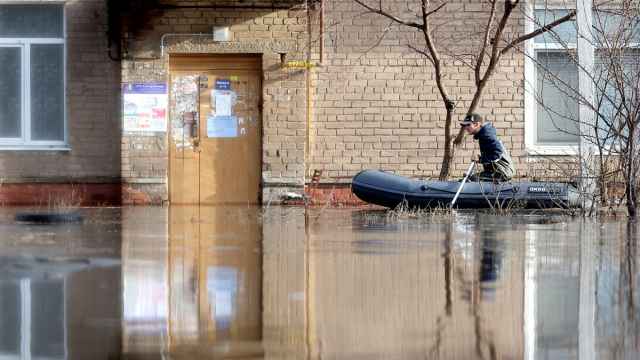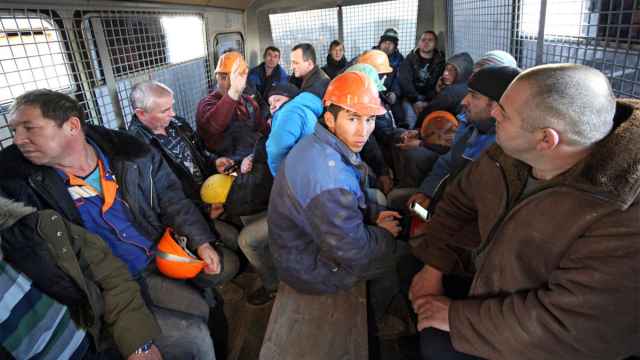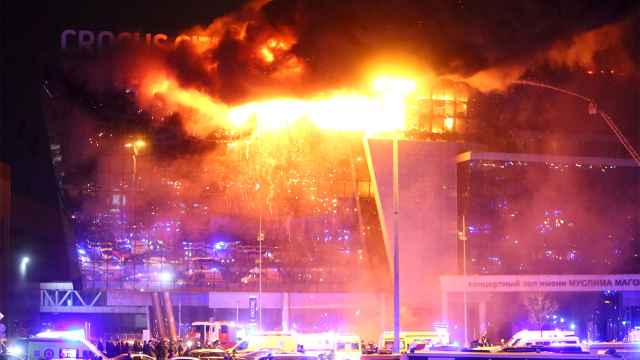Мутузить: to beat someone up
It’s that time of the year again. Protesters. Cops. Rallies, sanctioned or unsanctioned. Truncheons. Lots of people detained. Jail sentences. After-the-fact arrests. Searches. Grandmothers grabbing their Valerian drops.
Since there are no signs that this is going to let up any time soon, I thought it might be helpful to have something like a program, like the kind you get in a theater, to help you follow the actors and actions. It may need frequent updates, since the cast of characters keeps changing, along with the slang. The protest lingo from a decade ago just doesn’t cut it anymore.
First of all: Что (what). You can use the term акция (action, act) to describe any kind of protest, starting with сидячая демонстрация протеста (sit-in), sometimes called — not quite properly — итальянская забастовка (an Italian strike, specifically a slow-down at the workplace). It can also refer to марш (march); митинг (rally, demonstration); or even a small собрание (gathering). These can be согласованные (authorized, that is, conducted with the authorities’ approval) or несогласованные (unauthorized, that is, something for which you may get hit over the head, detained, arrested, or otherwise treated very, very badly).
This weekend at the rallies, the “no’s” and “un’s” ruled: незарегистрированные кандидаты и протестующие (unregistered candidates and protesters) conducted несогласованные акции (unauthorized actvities) similar to the previous марш несогласных (march of dissidents).
Кто (who). On the one side are those протестующие (protesters) and несогласные (dissidents). On the other side are a bewildering, to me, array of armed men, who represent what appears to be a changing group of organizations (I think). There used to be внутренние войска (Internal Ministry troops), which were called colloquially вохра. I don’t know where they went.
This year there were Войска национальной гвардии Российской Федерации (troops of the National Guard of the Russian Federation) aka Росгвардия (Rosgvardiya). There were also ОМОНовцы, that is, men from the отряд мобильный особого назначения (special purposes mobile unit), which used to be called отряд милиции особого назначения (special purposes militia unit) until the милиция (militia) became полиция (police) and everyone realized that the abbreviation ОПОН didn’t have the same classy ring to it. ОМОН is a special unit within Rosgvardiya, which is an independent federal agency.
If a guy dressed in black and armed to the teeth is grabbing you or bashing you over the head with his дубинка (truncheon), it probably doesn’t matter to you which unit he represents. So most folks just call them космонавты (cosmonauts) because of their huge round helmets and bullet-proof glass face shields, their бронежилеты (bullet-proof vests), and nifty наплечники (shoulder pads) and наколенники (kneepads).
Behind them are полицейские (policemen), who generally wear less body armor.
And then, to the side are the infamous люди в штатском (men in civilian clothing), who, by all reports, walk around and spot people to be detained. Взять его! (Take this one!) they tell the cosmonauts and cops, who duly grab them and stick them in the waiting автозак (paddy wagon). Who are these guys? Who do they report to? No one seems to know, and they aren’t saying.
Как (How) did the cosmonauts treat the marchers? Not nicely. Жёстко разгоняли эту акцию и напугали людей (They violently broke up the demonstration and scared people). Жестоко подавляли (They brutally put it down.) Били (They hit them). Отмутузили протестующих (They beat the crap out of the protesters).
The whole thing, in slang, is винтилово (a crackdown). Винтить (to screw) and скрутить (to twist) can be used to describe nasty things done to arms: Они скрутили ему руки и потащили его в автозак (They twisted his arms and dragged him to the paddy wagon). But alone, without the arms and hands, either verb means to detain someone. Они стояли на стороне и никто их не винтил (They stood off to the side and no one detained them.)
Почему (Why?) This question was the hot topic on radio and TV shows, blog posts, and media articles. Why was it so violent? And who gave the order? No one knew or would say who gave the order, but everyone thought it was probably something rather benign sounding: Чтобы эти люди больше не выходили ([Take care of it] so that those people don’t come out on the streets again.) And then that got translated down to the lower-level guys, who might say something like: Метелить и не обращать внимания ни на что (Beat ‘em up no matter what).
И дальше что? (And then what?) Задержание (detention). Суд (court hearing). Арест (arrest). Большие штрафы (big fines). Уголовные и административные преследования (felony and misdemeanor prosecution).
For the folks paying attention to all this, it’s pretty grim. But I’ve seen this movie before, and it doesn’t end well. I just wish Russia would stop producing remakes.






